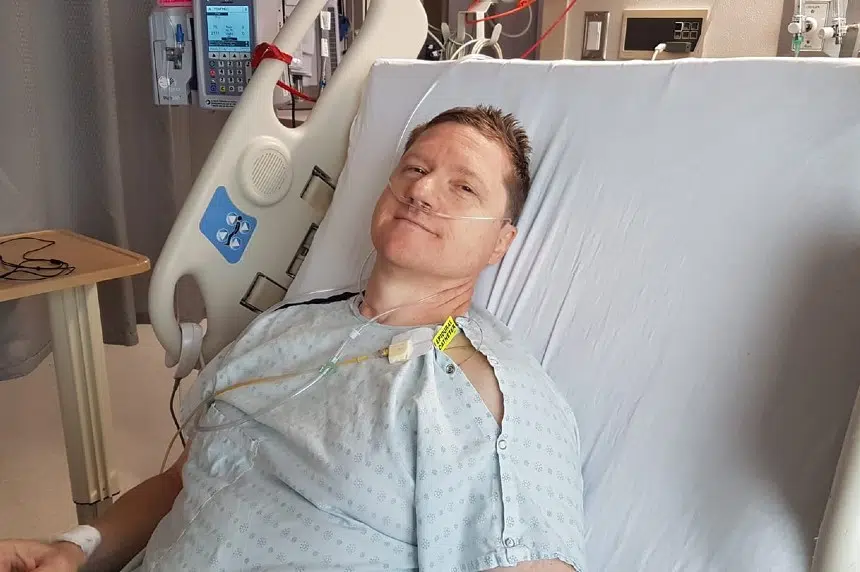A Saskatoon man has been given a special exemption to take psilocybin mushrooms to help him deal with the psychological impact of his terminal cancer.
Thomas Hartle is a 52-year-old father of two. He’s also a palliative care patient who has been living with cancer since 2016.
“I tend to be a real positive person. This whole anxiety business has been very foreign to me,” Hartle said Monday on Gormley. “It hasn’t been something I’ve had to deal with until I got cancer.”
Psilocybin mushrooms, also known as magic mushrooms, are illegal in Canada.
Hartle had to request permission to use the drug legally. He had to apply for an exemption on compassionate grounds to the Controlled Drugs and Substances Act.
He issued his request more than 100 days ago.
Hartle recently joined three other Canadians who are also suffering from terminal illnesses to be able to have psychedelic therapy. This is the first time that legal exemption has been given in Canada.
Hartle spoke with Gormley about the psychological benefits that participating in psychedelic therapy can give him, and others like him.
“It allows the therapist to access a lot more vulnerable places because you have a lower fear response. There are a lot of things that go on when you’re having a psychedelic trip,” he said.
“A therapist can use it as a tool to look at certain issues. It makes you more open to things that are traumatic to you.”
The process of getting an effective dose is more challenging, according to Hartle, as it’s difficult for it to be consistent when you’re growing them yourself.
“I have experience growing culinary mushrooms; it’s no different than that,” he said.
“You dry it, and then I intend to grind it and capsulate it so I can get a consistent dose. It’s a natural substance, so it’s hard to get a consistent dose. It would be fantastic if you could go to a dispensary and get a reliable dosage. It is an illegal substance and you can’t just run to the grocery store and pick them up.”
Overall, the process of getting the legal exemption to use magic mushrooms was relatively efficient, according to Hartle, despite having to wait more than 100 days. He says the people working for the controlled substance department have shown him a lot of compassion.
“I’m hoping I will be able to work through this,” he said. “I want to spend the time I have left enjoying it with my family.”











